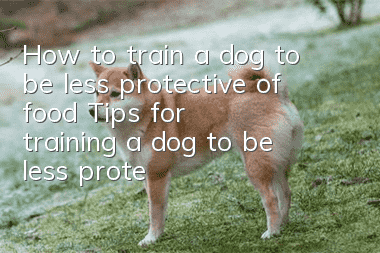Things to note when raising Border Collies

The Border Collie’s IQ ranks first among dog breeds in the world. It is very smart and therefore very popular among urban residents. I believe that many friends who want to raise a Border Collie will be concerned about its breeding. So how should you raise a Border Collie? What are the precautions for raising a Border Collie? Today I will introduce them to you one by one!
How to raise a Border Collie?
1. Frequency and time of feeding
The number of feedings per day is roughly as follows: after weaning to three months old: three to four times. Three to six months old: two to three times. Six months to one year old: two times. Over one year old: one or two feedings. The timing of feeding can be matched. Your work and rest time is not just about feeding, you also need to consider adding the time for walking the Border Collie after meals, urinating, urinating, cleaning the potty, and washing dishes. Wash the bowl immediately after a meal to prevent the residue from attracting rats, cockroaches, and ants, or leaving too much food left to rot in the sun and rain. At the same time, remove the bowl to prevent it from getting bored and playing with the bowl or even chewing it. As for how much to feed, usually follow the instructions, and then adjust according to whether there is any leftover from the last meal.
2. How much is appropriate to eat
It is enough to feed the border collie only about seventy percent full. Don’t overdo it. Let it lick the bowl with satisfaction. If you eat too much and run and jump after the meal, it will be easy to spit it out intact. For border colts who are kept in cages all year round, eating is their rare entertainment, so they will be as greedy as a starving ghost. Don't let them fool you into thinking you are really hungry. But a Border Collie that always eats not enough, does not have much activity, and has poor excretion may be really sick, and it is best to take it to see a doctor. When changing the dog's food, don't change it all at once. Mix half of the new food each time, try it for two or three days, gradually increase the new amount, and then use the new food after a week. In this way, the Border Collie's digestive system can adapt, otherwise it will be prone to diarrhea. Many people think that Border Collies chew bones. In fact, chewing bones can easily block the intestines of Border Collies, making them constipated, causing vomiting and poor appetite. In particular, avoid chicken bones, as they are small and brittle and can easily clog the esophagus and pierce the gastrointestinal tract. When feeding, be sure to give plenty of water at the same time. There is no need to use distilled or boiled water, as their intestines and stomach do not care about these. In short, if you feed them regularly, quantitatively and at fixed points, the little Border Collie will be happy and the whole family will be happy.
3. Considerations when buying imported food
When buying imported food, try to find one with Chinese descriptions and the importer’s phone number. Because the canned dry food that comes across the ocean may have expired, smelly, or become moldy. If it's damp or infested with insects, ask the boss to return or replace it immediately, no need to be polite. After opening, it must be stored properly, the cans should be placed in the refrigerator, and the dry food should be sealed. When buying for the first time, don’t buy too much. You can buy two or three kinds in small quantities to see how the little Border Collie reacts after eating; includingPalatability. The degree of digestion and absorption, and the shape of the excrement. Each variety says that its product is the best, cheap and big, so you might as well ask doctors and experienced people for advice.
- How to correct Husky barking
- What's the matter with a dog's nose running clear?
- How to treat pica in dogs?
- Can dogs get tooth decay?
- How much does a Shih Tzu cost and is it easy to keep?
- Can dogs eat watermelon in summer?
- What is canine parainfluenza? Symptoms and treatment of canine parainfluenza
- How to train and correct little Springer’s bad behavior
- What to do if your dog has urinary incontinence
- How to tell the age of a Border Collie from its teeth?



